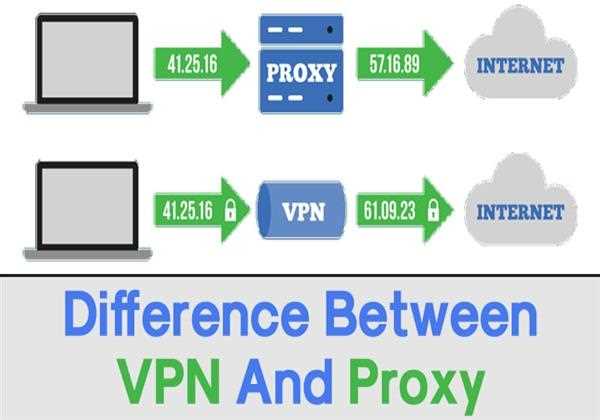Proxy servers and VPNs are two technologies used to protect online privacy and security. While they both allow users to browse the internet anonymously and bypass censorship, there are some fundamental differences between the two.
A proxy server acts as an intermediary between the user's computer and the internet. When a user requests a web page, the request is sent to the proxy server first, which then forwards the request to the web server. The web server then responds to the proxy server, which in turn sends the response back to the user's computer. This process allows the user to access the internet anonymously, as the web server sees the IP address of the proxy server, not the user's IP address.
A VPN, on the other hand, creates an encrypted tunnel between the user's computer and the internet. When a user connects to a VPN server, all of their internet traffic is encrypted and routed through the VPN server, which then sends the traffic to the internet. This process hides the user's IP address and encrypts all of their internet traffic, making it much more difficult for hackers, governments, and other third parties to intercept and monitor the user's online activities.
One of the main differences between proxy servers and VPNs is the level of security they provide. While proxy servers can provide some level of anonymity, they do not encrypt internet traffic, which means that the user's online activities can still be monitored by third parties. VPNs, on the other hand, provide end-to-end encryption, which means that all internet traffic is secured and protected from prying eyes.

Another key difference between the two is the level of control that the user has over their online privacy and security. With a proxy server, the user has no control over the types of traffic that are routed through the proxy server, which means that sensitive data, such as login credentials, can be exposed. With a VPN, the user can choose which types of traffic are encrypted and routed through the VPN server, which provides greater control over their online privacy and security.
Finally, proxy servers are often used to bypass geographical restrictions, such as those placed on streaming services like Netflix or YouTube. VPNs can also be used for this purpose, but they are much more effective at bypassing restrictions, as they provide a much higher level of anonymity and security.
In conclusion, while both proxy servers and VPNs can provide some level of online privacy and security, VPNs are generally considered to be the more secure and reliable option. They provide end-to-end encryption, greater control over online privacy and security, and are more effective at bypassing geographical restrictions. However, proxy servers can still be useful for some applications, such as web scraping or accessing geographically restricted content.